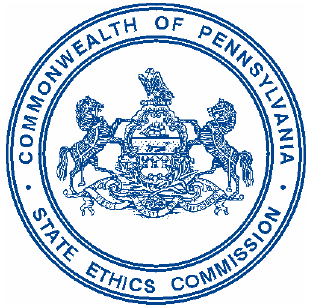Related Research Articles
Business ethics is a form of applied ethics or professional ethics, that examines ethical principles and moral or ethical problems that can arise in a business environment. It applies to all aspects of business conduct and is relevant to the conduct of individuals and entire organizations. These ethics originate from individuals, organizational statements or the legal system. These norms, values, ethical, and unethical practices are the principles that guide a business.
Medical ethics is an applied branch of ethics which analyzes the practice of clinical medicine and related scientific research. Medical ethics is based on a set of values that professionals can refer to in the case of any confusion or conflict. These values include the respect for autonomy, non-maleficence, beneficence, and justice. Such tenets may allow doctors, care providers, and families to create a treatment plan and work towards the same common goal. It is important to note that these four values are not ranked in order of importance or relevance and that they all encompass values pertaining to medical ethics. However, a conflict may arise leading to the need for hierarchy in an ethical system, such that some moral elements overrule others with the purpose of applying the best moral judgement to a difficult medical situation. Medical ethics is particularly relevant in decisions regarding involuntary treatment and involuntary commitment.

Peggy Ann Lautenschlager was an American attorney and Democratic politician who was the first chair of the Wisconsin Ethics Commission from 2016 to 2017, the 42nd Attorney General of Wisconsin from 2003 to 2007, the United States Attorney for the Western District of Wisconsin from 1993 to 2001, a member of the Wisconsin State Assembly for the 52nd district from 1989 to 1993, and the Winnebago County District Attorney from 1985 to 1989. Lautenschlager was the first woman to serve as Attorney General of Wisconsin.
Jean Ginn Marvin is a former state representative in the state of Maine. She represented Cape Elizabeth in the Maine House of Representatives from 1994 to 2000 as a member of the 117th, 118th, and 119th Legislatures. During her tenure in the Legislature, Marvin served as Ranking Minority Member of the Business and Economic Development Committee, as well as a member of the Appropriations and Financial Affairs Committee.

Amendment 41 is a citizen initiative adopted by Colorado voters in the 2006 general election. Amendment 41 has three main sections.

The Texas Ethics Commission was established in 1991 to oversee and provide guidance on various public ethics laws within the state of Texas. The agency's main office is located on the 10th Floor of the Sam Houston State Office Building at 201 East 14th Street in Downtown Austin.
Legal advertising is advertising by lawyers (attorneys), solicitors and law firms. Legal marketing is a broader term referring to advertising and other practices, including client relations, social media, and public relations. It's a type of marketing undertaken by law firms, lawyers (attorneys) and solicitors that aims to promote the services of law firms and increase their brand awareness.

James Edward Bromwell was a two-term Republican U.S. Representative from Iowa's 2nd congressional district. He was elected in 1960, re-elected in 1962, and defeated in 1964.
The following outline is provided as an overview of and topical guide to ethics.
The Nevada Commission on Ethics is a commission that investigates ethics violations by government officials or employees in the state of Nevada in the United States. It has jurisdiction over public officers and employees at the state, county, and city levels of government, as well as various other political subdivisions. The Commission consists of eight members appointed for four-year terms.

The Pennsylvania State Ethics Commission is the main ethics commission for the Government of Pennsylvania.
Irreligion in Belgium pertains to citizens of Belgium that are atheist, agnostic, or otherwise unaffiliated with any religion. Irreligion is the second most common religious stance in Belgium, following Catholicism.

David M. Louie is an American lawyer who served as Attorney General of Hawaii from 2011 to 2014.
The American Bar Association's Model Rules of Professional Conduct (MRPC) are a set of rules and commentaries on the ethical and professional responsibilities of members of the legal profession in the United States. Although the MRPC generally is not binding law in and of itself, it is intended to be a model for state regulators of the legal profession to adopt, while leaving room for state-specific adaptations. All fifty states and the District of Columbia have adopted legal ethics rules based at least in part on the MRPC.
Nevada Commission on Ethics v. Carrigan, 564 U.S. 117 (2011), was a Supreme Court of the United States decision in which the Court held that the Nevada Ethics in Government Law, which required government officials recuse in cases involving a conflict of interest, is not unconstitutionally overbroad. Specifically, the law requires government officials to recuse themselves from advocating for and voting on the passage of legislation if private commitments to the interests of others materially affect the official's judgment. Under the terms of this law, the Nevada Commission on Ethics censured city councilman Michael Carrigan for voting on a land project for which his campaign manager was a paid consultant. Carrigan challenged his censure in court and the Nevada Supreme Court ruled in his favor, claiming that casting his vote was protected speech. The Supreme Court reversed, ruling that voting by a public official on a public matter is not First Amendment speech.
The Fair Political Practices Commission (FPPC) of California is a five-member independent nonpartisan commission that has primary responsibility for the impartial and effective administration of the Political Reform Act of 1974. The Commission's objectives are to ensure that public officials act in a fair and unbiased manner in the governmental decision-making process, to promote transparency in government, and to foster public trust in the political system.
Brian Egolf is an American attorney and politician who served as a member of the New Mexico House of Representatives. He has also served as speaker of the House between 2017 and 2023.
The Oregon Government Ethics Commission, formerly known as the Oregon Government Standards and Practices Commission, is a nine-member government body in the U.S. state of Oregon responsible for enforcing the state's government ethics, lobbying, and executive session laws. The commission reviews possible violations and is empowered to make legal determinations and issue advisory opinions.

James J. Craven Jr. was a member of the Massachusetts House of Representatives from the 12th Suffolk District starting in 1957. Craven was found guilty the state's conflict-of-interest law. Upon appeal, the Massachusetts Supreme Judicial Court (SJC) affirmed they lower court’s decision in Craven’s case against the State Ethics Commission.
References
- ↑ "State Ethics Commissions: Powers and Duties". www.ncsl.org. Retrieved 2024-02-17.